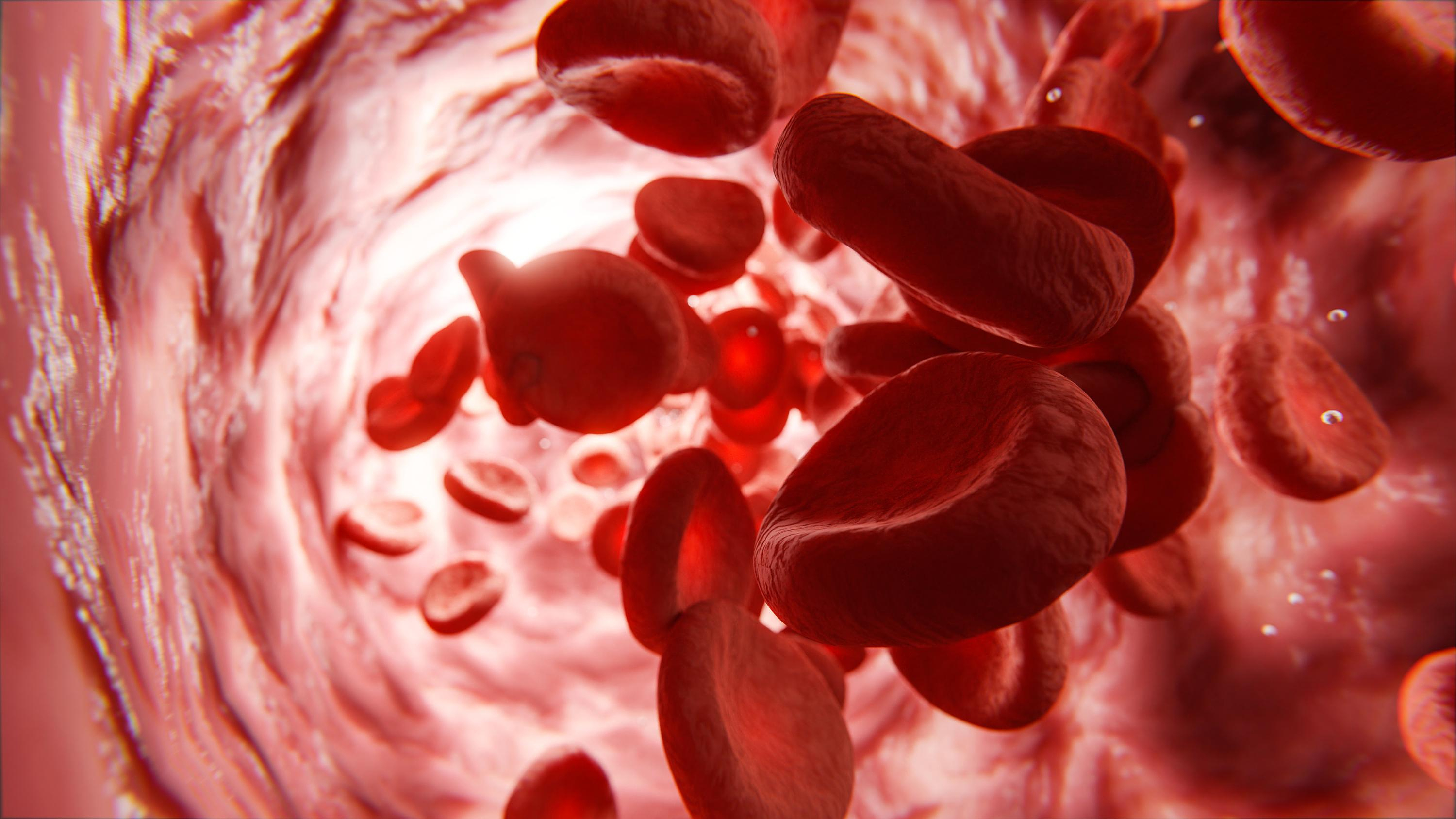While most of the Covid-19 pandemic is in the past, many patients around the world are still dealing with the virus in its persistent form. It is estimated that between 4% and 10% of people infected with Sars-CoV-2 will suffer from long Covid, with symptoms lasting several weeks or even several months after initial contamination. In France, 2 million patients are affected. But from chronic shortness of breath to memory, muscular or digestive problems, the symptoms remain very diverse. Which makes his diagnosis particularly tricky.
In the absence of specific medical criteria, doctors often proceed by elimination, excluding all other possible causes of the symptoms experienced. A laborious process, which leaves many patients in the dark for some time. However, advances in research have taught us that these patients present with immune and hormonal dysfunction. Hence the idea of looking for “markers” of long Covid directly in the blood of patients. A team of Swiss and American researchers managed to identify new specific molecules that could help with diagnosis.
Also read: Long Covid, a new chronic disease
In this study published in Science, scientists screened blood samples from 113 patients infected with Sars-CoV-2 and 39 healthy controls. All participants were followed for one year. After 6 months, 40 of the infected patients had persistent symptoms and were therefore diagnosed with long Covid. Using a proteomic approach which consisted of comparing the levels of 6,596 proteins in the blood serum of all participants, the authors sought to identify potential blood markers in these patients with long Covid.
It emerged that these patients presented specific changes in their serum protein levels, indicating increased activation of the complement system, a component of the immune system involved in the fight against pathogens. “The complement system has a dual role, on the one hand in regulating the immune system, and on the other hand in interfering with coagulation factors and the blood vessel. Usually, this mechanism is activated during the acute phase of the disease but returns to normal once the infection has passed,” explains Professor David Smadja, hematologist at the Georges-Pompidou European Hospital (AP-HP and university Paris-Cité) and researcher in the therapeutic innovations in hemostasis unit at Inserm.
However, in long Covid, the complement system “goes into overdrive” chronically, promoting tissue damage. Such hyperactivity was specifically correlated with a variation in some of the proteins that make up the complement system (increase in C5b-C6, decrease in C7). The researchers therefore suggest that these proteins could serve as markers for long Covid.
Also read Can the vaccine relieve the symptoms of long Covid?
But that's not all. This abnormality in complement system activity was also coupled with signs of persistent thromboinflammation, a pathophysiological mechanism that results in the formation of blood clots (thrombosis) combined with a chronic inflammatory response.
In the patients in the study, this thrombo-inflammatory signature was characterized by an increase in the level of the protein thrombospondin-1 and von Willebrand factor, two players promoting the coagulation of blood cells (platelets) and damage to blood cells. blood vessels. “These results confirm that the complement system and the blood vessel are two parameters which appear to be dysfunctional in long Covid, and which would a priori be detectable by a simple blood test,” underlines Professor Smadja.
Also read: Post-infectious syndrome, a long-known phenomenon
Be careful, however, because researchers doubt that we will one day be able to identify a universal biomarker for long Covid. “The different symptoms show very clearly that there are very different clinical forms,” insists Professor Jérôme Estaquier, Inserm research director in the environmental toxicity, therapeutic targets, cell signaling and biomarkers unit at Inserm. “In reality, we should rather talk about “long” Covids, adds Professor Smadja. This is important because it suggests that there are several biological markers, probably specific to each clinical form. »
Other work has already reported a certain number of blood biomarkers for long Covid, in particular the presence of persistent antibodies to the virus, vascular proliferation or even unusual activity of a subpopulation of T lymphocytes. (CD8). It is therefore very difficult to know whether the newly identified biomarkers can be used routinely. “For this, the results will have to be replicated and differentiated according to the main categories of respiratory, neurological, digestive, and cardiac symptoms of long Covid,” indicates Professor Estaquier.
Another limitation is that the identification of biomarkers for long Covid could depend on other parameters, such as sex or age. “We know that long Covid tends to appear more often in women and that age can influence the differential activation of the complement system. Future studies will therefore have to be very attentive to these parameters,” concludes Jérôme Estaquier.

 B:SM will break its investment record this year with 62 million euros
B:SM will break its investment record this year with 62 million euros War in Ukraine: when kyiv attacks Russia with inflatable balloons loaded with explosives
War in Ukraine: when kyiv attacks Russia with inflatable balloons loaded with explosives United States: divided on the question of presidential immunity, the Supreme Court offers respite to Trump
United States: divided on the question of presidential immunity, the Supreme Court offers respite to Trump Maurizio Molinari: “the Scurati affair, a European injury”
Maurizio Molinari: “the Scurati affair, a European injury” Irritable bowel syndrome: the effectiveness of low-carbohydrate diets is confirmed
Irritable bowel syndrome: the effectiveness of low-carbohydrate diets is confirmed Beware of the three main sources of poisoning in children
Beware of the three main sources of poisoning in children First three cases of “native” cholera confirmed in Mayotte
First three cases of “native” cholera confirmed in Mayotte Meningitis: compulsory vaccination for babies will be extended in 2025
Meningitis: compulsory vaccination for babies will be extended in 2025 When traveling abroad, money is a source of stress for seven out of ten French people
When traveling abroad, money is a source of stress for seven out of ten French people Elon Musk arrives in China to negotiate data transfer and deployment of Tesla autopilot
Elon Musk arrives in China to negotiate data transfer and deployment of Tesla autopilot Patrick Pouyanné, CEO of TotalEnergies, is very reserved about the rapid growth of green hydrogen
Patrick Pouyanné, CEO of TotalEnergies, is very reserved about the rapid growth of green hydrogen In the United States, a Boeing 767 loses its emergency slide shortly after takeoff
In the United States, a Boeing 767 loses its emergency slide shortly after takeoff A charred papyrus from Herculaneum reveals its secrets about Plato
A charred papyrus from Herculaneum reveals its secrets about Plato The watch of the richest passenger on the Titanic sold for 1.175 million pounds at auction
The watch of the richest passenger on the Titanic sold for 1.175 million pounds at auction Youn Sun Nah: jazz with nuance and delicacy
Youn Sun Nah: jazz with nuance and delicacy Paris Globe, a new international theater festival
Paris Globe, a new international theater festival Skoda Kodiaq 2024: a 'beast' plug-in hybrid SUV
Skoda Kodiaq 2024: a 'beast' plug-in hybrid SUV Tesla launches a new Model Y with 600 km of autonomy at a "more accessible price"
Tesla launches a new Model Y with 600 km of autonomy at a "more accessible price" The 10 best-selling cars in March 2024 in Spain: sales fall due to Easter
The 10 best-selling cars in March 2024 in Spain: sales fall due to Easter A private jet company buys more than 100 flying cars
A private jet company buys more than 100 flying cars This is how housing prices have changed in Spain in the last decade
This is how housing prices have changed in Spain in the last decade The home mortgage firm drops 10% in January and interest soars to 3.46%
The home mortgage firm drops 10% in January and interest soars to 3.46% The jewel of the Rocío de Nagüeles urbanization: a dream villa in Marbella
The jewel of the Rocío de Nagüeles urbanization: a dream villa in Marbella Rental prices grow by 7.3% in February: where does it go up and where does it go down?
Rental prices grow by 7.3% in February: where does it go up and where does it go down? Even on a mission for NATO, the Charles-de-Gaulle remains under French control, Lecornu responds to Mélenchon
Even on a mission for NATO, the Charles-de-Gaulle remains under French control, Lecornu responds to Mélenchon “Deadly Europe”, “economic decline”, immigration… What to remember from Emmanuel Macron’s speech at the Sorbonne
“Deadly Europe”, “economic decline”, immigration… What to remember from Emmanuel Macron’s speech at the Sorbonne Sale of Biogaran: The Republicans write to Emmanuel Macron
Sale of Biogaran: The Republicans write to Emmanuel Macron Europeans: “All those who claim that we don’t need Europe are liars”, criticizes Bayrou
Europeans: “All those who claim that we don’t need Europe are liars”, criticizes Bayrou These French cities that will boycott the World Cup in Qatar
These French cities that will boycott the World Cup in Qatar MLS: new double for Messi who offers victory to Miami
MLS: new double for Messi who offers victory to Miami PSG-Le Havre: Ramos on his way, Kolo Muani at the bottom of the hole… Favorites and scratches
PSG-Le Havre: Ramos on his way, Kolo Muani at the bottom of the hole… Favorites and scratches Football: Vasco da Gama separates from its Argentinian coach Ramon Diaz
Football: Vasco da Gama separates from its Argentinian coach Ramon Diaz F1: for the French, Ayrton Senna is the 2nd best driver in history ahead of Prost
F1: for the French, Ayrton Senna is the 2nd best driver in history ahead of Prost

















